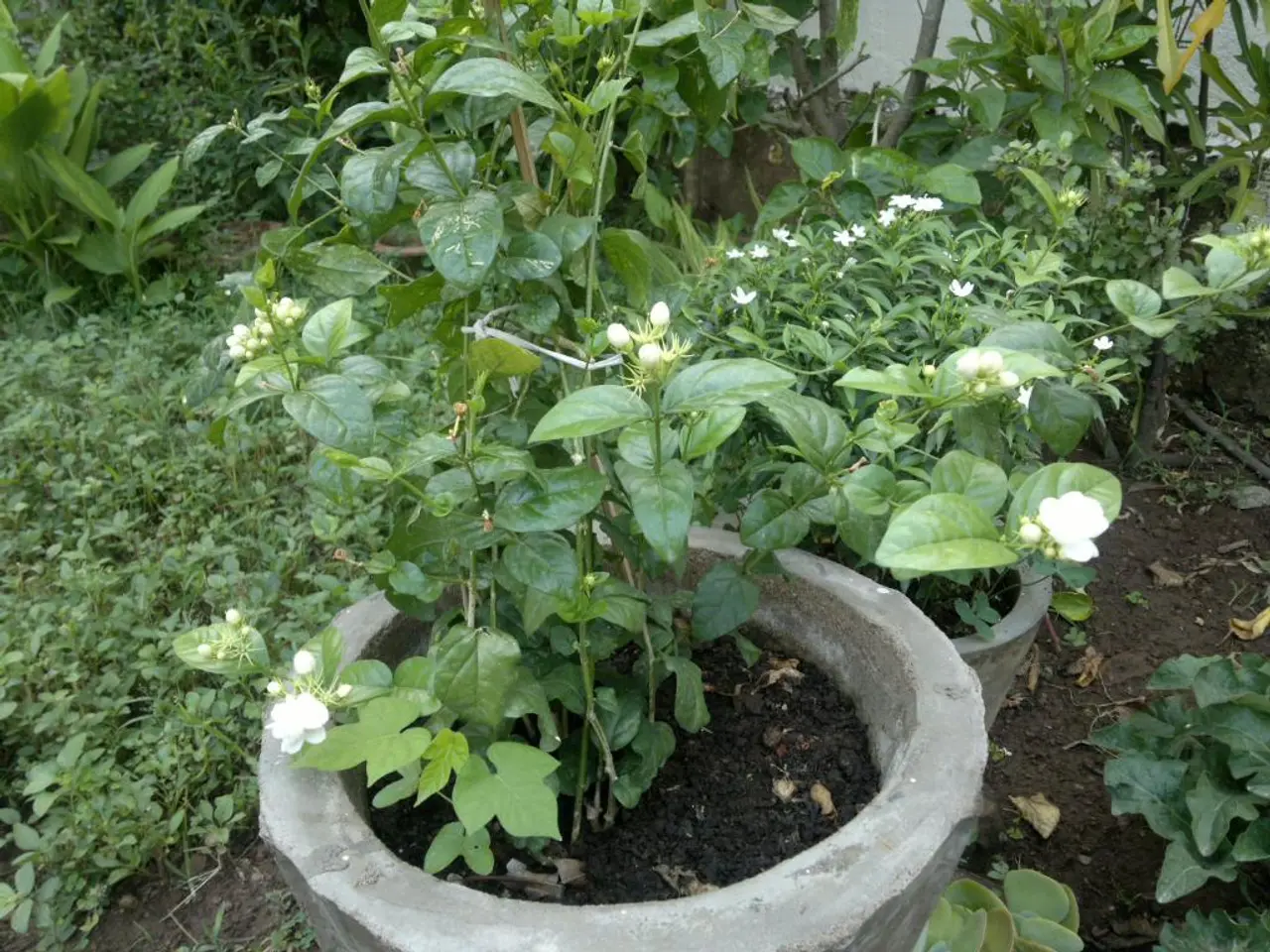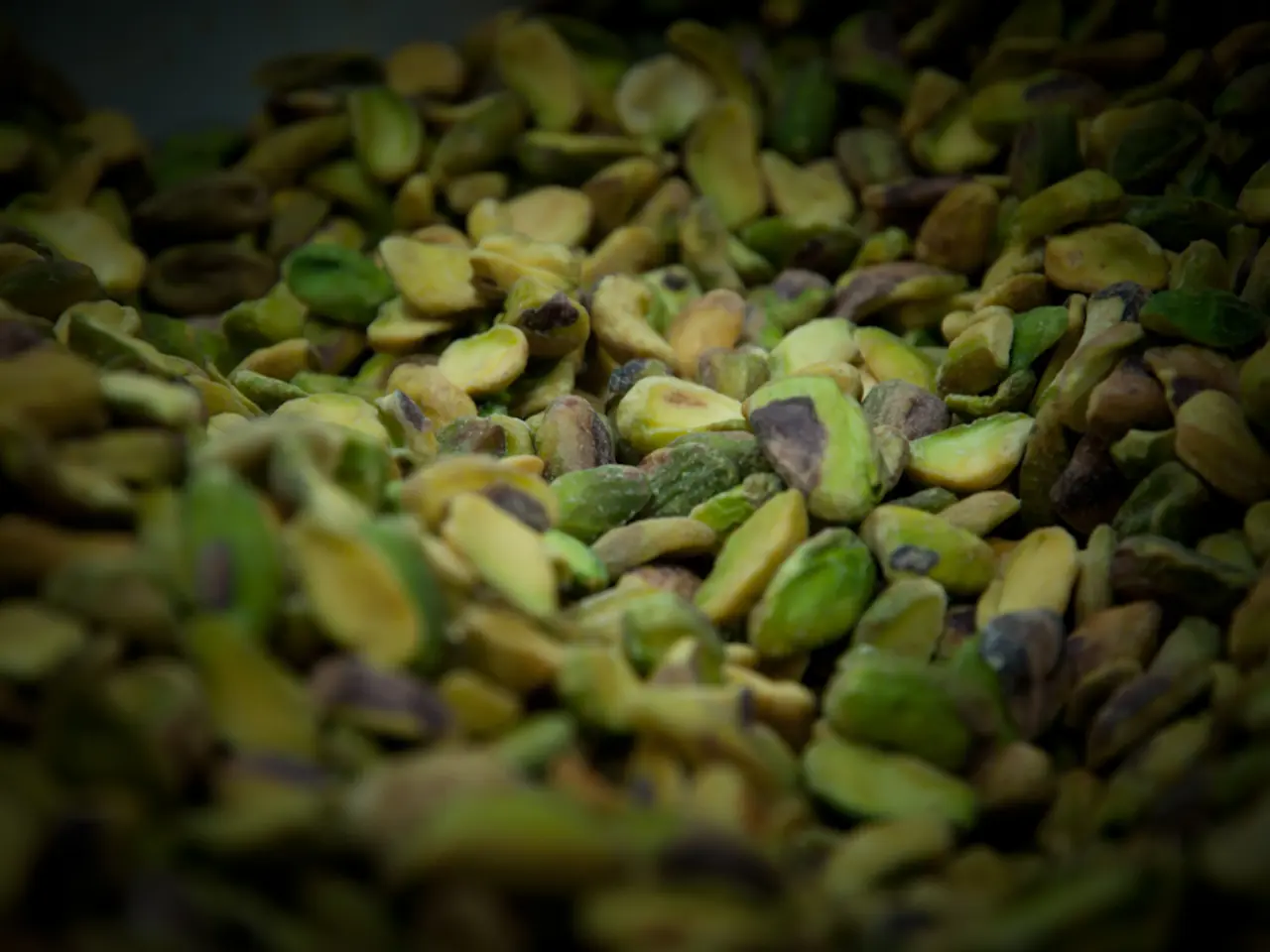Integrating Mental Health Practices within the Framework of Sustainable Gardening Planning
The benefits of nature for our mental health are increasingly becoming clear. Studies show that being in nature can lower stress, improve mood, and provide sensory experiences that help us feel better [1]. This is why the concept of permaculture mental healthcare is gaining traction.
Permaculture mental healthcare is a growing field that combines sustainable living with holistic wellness. It uses nature-based interventions to support mental health, focusing on the person and the community to tackle mental health issues together [2].
New training programs for mental health professionals are focusing on using nature for therapy. These programs teach ecological system thinking, nature-based therapeutic interventions, permaculture design principles, and mental health integration strategies [3].
One of the key advantages of permaculture mental healthcare is its accessibility. It is affordable, using community resources and low-cost gardening to help people from different backgrounds feel better [4].
Research supports the connection between permaculture and mental health. Gardening and nature-based activities, central to permaculture, have documented therapeutic effects such as lowering cortisol (stress hormone) levels, reducing anxiety, enhancing focus, and improving sleep quality [1][3][4].
Regenerative farming and permaculture practices also promote emotional clarity and a sense of belonging via social bonds formed through collective planting and storytelling, which address loneliness and foster community resilience [4][5].
The future of mental health is about working together in new ways, linking our well-being to nature, and creating caring and strong mental health systems. Initiatives like the Care Farming Network, funded by a $257,000 SARE grant, are showing how to tackle big challenges in mental health care [6].
The Holistic Community Awareness Foundation is leading the way in using permaculture for mental health. Projects like the Forest Farm Peace Garden offer social and horticultural therapy, helping many people [7].
Policy also plays a crucial role in supporting permaculture mental healthcare. The Social Peas project, for example, shows how policy can help older people who feel lonely, with potential impacts including more money for nature-based therapies, more green spaces for healing, and preventing mental health problems [8].
Good policies can build strong mental health support systems. Key steps include creating detailed mental health plans, adding green care to community health plans, and encouraging teamwork across fields [9].
By exploring new paths, we can build stronger, kinder mental health systems that help both individuals and communities heal. Permaculture mental healthcare creates strong healing systems that help both individuals and communities heal [10].
In summary, current research favors the view that permaculture-related activities and environments support mental health through physical, social, ecological, and psychological pathways. While direct clinical research on “permaculture mental healthcare” as a specific field is limited, related fields such as horticultural therapy for dementia and nature-based wellness tourism show measurable improvements in mental health outcomes [1]. Practices rooted in permaculture design philosophy, such as organic methods and fostering biodiversity, combine environmental sustainability with mental health benefits, suggesting a promising frontier for mental healthcare and wellbeing interventions [5].
So, start incorporating permaculture principles into mental health care by making green spaces and joining community gardens, practicing mindful gardening, and looking for programs that combine nature and mental health. The vision for a holistic approach to mental healthcare is about linking our well-being to nature, creating caring and strong mental health systems, and helping both people and the planet thrive.
References:
[1] Berman, M. G., Jonides, J., & Kaplan, S. (2008). The cognitive benefits of interacting with nature. Psychological Science, 19(12), 1207–1212.
[2] National Mental Health Foundation, Environmental Health Grant Program, Local Community Development Fund (Undated).
[3] National Institute for Health and Care Excellence (2018). Green exercise: promoting physical activity and public health through exposure to natural environments.
[4] White, M. P., Alcock, I., Wheeler, B. W., & Depledge, M. H. (2015). The social and psychological benefits of green exercise. Environmental Science & Technology, 49(10), 6248–6254.
[5] Pretty, J., Peacock, J., Sellens, M., & Benton, T. (2005). What is the best dose of nature and for how long? A multi-centre study of the effects of natural and urban soundscapes on mood and cognition. Journal of Environmental Psychology, 25(3), 207–217.
[6] Care Farming Network (2021). SARE grant supports sustainable agriculture and mental health in New Jersey.
[7] Forest Farm Peace Garden (Undated). About us.
[8] Social Peas (Undated). What we do.
[9] World Health Organization (2013). Mental health action plan 2013–2020: strengthening our response to mental disorders.
[10] International Federation of Organic Agriculture Movements (IFOAM) (2018). The future of mental health: working together in new ways, linking our well-being to nature, and creating caring and strong mental health systems.
- The benefits of nature for mental health are increasingly evident, as studies show that being in nature can lower stress, improve mood, and offer sensory experiences that promote well-being.
- Permaculture mental healthcare, which combines sustainable living with holistic wellness, is gaining traction due to its nature-based interventions that support mental health.
- New training programs for mental health professionals are teaching ecological system thinking, nature-based therapeutic interventions, permaculture design principles, and mental health integration strategies.
- One advantage of permaculture mental healthcare is its accessibility, using community resources and low-cost gardening to help people from various backgrounds feel better.
- Research supports the connection between permaculture and mental health, with gardening and nature-based activities lowering cortisol levels, reducing anxiety, enhancing focus, and improving sleep quality.
- Regenerative farming and permaculture practices foster emotional clarity and a sense of belonging through collective planting and storytelling, addressing loneliness and promoting community resilience.




